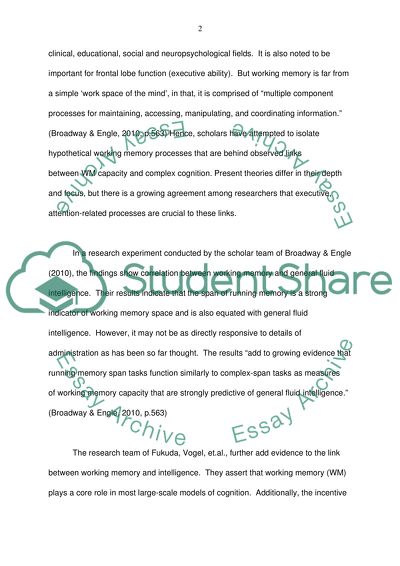Cite this document
(“Critically discuss the Role of Working memory in Intelligence Essay”, n.d.)
Critically discuss the Role of Working memory in Intelligence Essay. Retrieved from https://studentshare.org/psychology/1440524-critically-discuss-the-role-of-working-memory-in-intelligence
Critically discuss the Role of Working memory in Intelligence Essay. Retrieved from https://studentshare.org/psychology/1440524-critically-discuss-the-role-of-working-memory-in-intelligence
(Critically Discuss the Role of Working Memory in Intelligence Essay)
Critically Discuss the Role of Working Memory in Intelligence Essay. https://studentshare.org/psychology/1440524-critically-discuss-the-role-of-working-memory-in-intelligence.
Critically Discuss the Role of Working Memory in Intelligence Essay. https://studentshare.org/psychology/1440524-critically-discuss-the-role-of-working-memory-in-intelligence.
“Critically Discuss the Role of Working Memory in Intelligence Essay”, n.d. https://studentshare.org/psychology/1440524-critically-discuss-the-role-of-working-memory-in-intelligence.


